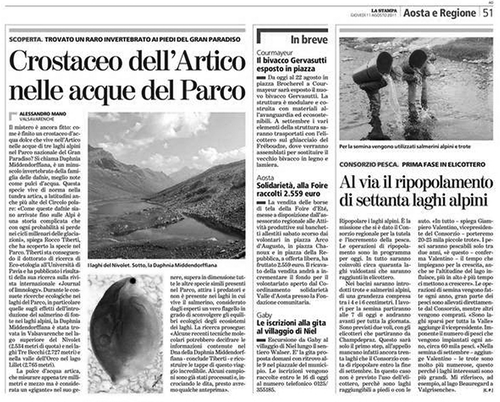Figures & data
Figure 1. Excerpt of an insert of the daily Italian newspaper La Stampa reporting the news from the Valle d’Aosta region (11 August 2011, p. 51). In a single page two items of “good news” are reported: (i) “Arctic crustacean discovered within the National Park” (large title on the left), and (ii) “Start of the fish stocking action of seventy alpine lakes” (title on the right). The former news talks about the finding of a very rare zooplanktonic crustacean (Daphnia middendorffiana, sensu Margaritora Citation1985; Daphnia pulicaria according to Bellati et al. Citation2014), which survived in a few mountain lakes of the Gran Paradiso National Park (Aosta, Italy) just because the lakes were conserved in their original fishless state, i.e. Daphnia pulicaria is a large zooplankton species, very sensitive to visual predation by introduced fish (Tiberti Citation2011); the latter is a report of a large fish stocking campaign involving 70 historically fishless high mountain lakes in the Western Italian Alps (Aosta).

